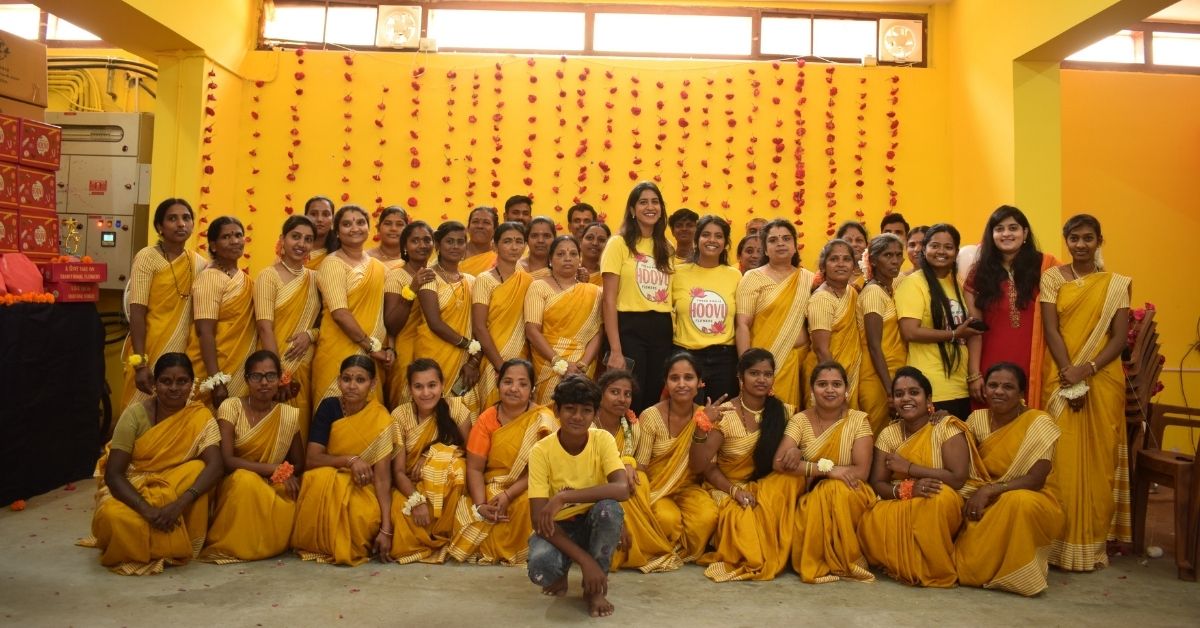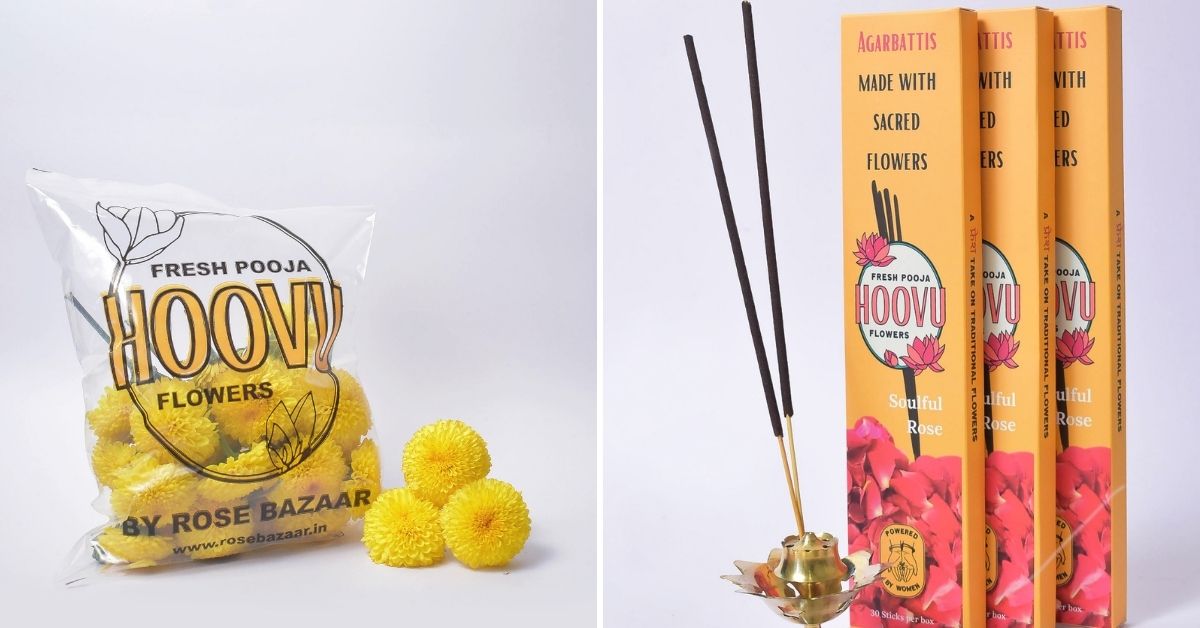Sisters Launch Puja Flower Subscription Startup, Earn Rs 8 Crore/Year
[ad_1]
It was just a simple complaint by her mother — about the dearth of puja flowers in their area — that first made Yeshoda Karuturi, a resident of Bengaluru, think about starting Hoovu (‘flowers’ in Kannada) and flower subscription.
With her sister Rhea, the 27-year-old sat down to explore a massive market gap in the floral industry to build a model wherein fresh flowers — from roses to chrysanthemums and lotus — could be delivered to one’s doorstep every day, just like a packet of milk, or a newspaper.
Today, this Bengaluru-based floral startup, which was launched with an initial investment of 10 lakh from an angel investor, clocks a turnover of Rs 8 crore annually.
Starting out in 2019, the sister duo have decided to give a ‘modern twist’ to the decades-old traditional flower market by introducing a subscription system. This field was no misfit for them, having grown up in a family that owned a thriving flower business.
Covering a decade-long market gap
“Our father Ram Karuturi owns rose farms in Kenya, Ethiopia and India. In fact, in the 90s, his Kenyan farm was recognised as the largest rose farm in the world. So, we grew up seeing how the cut-flower industry has changed dramatically through the years,” says Rhea.

While working in the cut-flower business, they realised that the potential for the bouquet flower market was huge across the world. “But later, when we changed our focus, we discovered that Indians don’t actually interact with flowers that way. Flowers serve a different need in every Indian household,” says Rhea, adding that both sisters grew up in Bengaluru and attended schools in Ethiopia.
Yeshoda, who is a postgraduate from Washington University in St Louis, notes, “The huge market gap in India’s flower industry, which has been untouched for decades. Though the flower bouquet market is quite organised and flourished, the traditional puja flower market was far behind in its growth.”
Indians use traditional flowers like jasmine, marigold, chrysanthemum, and bud roses in different ways, she says. “Besides using them for puja, people love wearing them on their hair, or hanging them in their autos, cars, shops and offices.”
“But when it comes to the traditional flower market in India, the supply chain is still incredibly fragmented and unorganised, and the wastage is huge. These flowers are supplied through multiple levels of handling after harvest, and by the time they reach the customer, they lose their freshness,” she adds.
Enabling small farmers
Meanwhile, when the idea of Hoovu first hit Yeshoda, her sister was still in college, pursuing a degree from Stanford University. Since both shared a common interest in running a business, Rhea decided to join her sister in launching their venture.
After thorough research about the market, in 2019, they decided to establish a platform that fixes the issue from both demand as well as the supply side.
And so, Hoovu was born.

“Hoovu means flowers in Kannada. We wanted the name to be in our mother tongue, as we felt that when it comes to puja flowers, people would easily relate to that name if it’s in their native language,” says Rhea.
“At Hoovu, we partner with farms directly. Usually, farmers bring their flowers to the local mandi to sell them. But we have tied up with farmers directly, which cuts the time taken during the selling process, thereby reducing the turnaround time to 12-24 hours,” says the 25-year-old, adding that they have currently collaborated with over 50 farmers from Karnataka, Kerala, and Tamil Nadu.
“After sourcing the flowers, we make sure that they are cleaned properly to make them bacteria and moisture-free. We have a quality packing process in place that keeps the flowers fresh for longer, extending its shelf life from two to three days to around 15 days,” she explains further.
Dr K Rajashekar, a dentist and a flower farmer based out of Bengaluru, says, “I have been supplying chrysanthemums to Hoovu from my farm in Kanakapura for over a year. Usually, I have to send the flowers to the local market, wait for the auction to happen, and then collect the money. It was a time consuming and tiring process. But here, we supply it to them directly and based on the quality of flowers, they pay us.”
“In this way, they are also helping several small farmers who don’t know how to market their produce,” he adds.

From loose flowers to garlands and different greens like tulsi and darbha grass, Hoovu offers a wide range of products. “We rely on different online platforms like Big Basket, Grofers, Supr Daily, Zomato, Milkbasket, FTH Daily and Zepto other than through our website,” says Yeshoda.
“We receive over 1,50,000 orders per month from Bengaluru, Hyderabad, Chennai, Mysore, Pune, Mumbai, Gurugram and Noida,” she adds.
“Last year, we introduced our agarbattis, and are happy that even those turned out to be a success,” Yeshoda notes.
(Edited by Divya Sethu)
[ad_2]
Source link










